Modern Project Management. Foundations
Professor

Jānis Paksis
About the professor
Jānis Paksis is a seasoned business technology expert with over two decades of experience in management, business, and technology. He has a proven track record of driving growth and innovation in various industries, including finance, telecommunications, and IT. Jānis is a board member of the Latvian National Project Management Association and is a certified project management specialist with extensive experience and has received certificates from leading institutes in the field. Jānis has practical experience managing large International IT and Tecnology Project Portfolios in leading global Technology companies.
Course Description
This Project Management foundational course is designed for professionals who have interest in Project management, project team members, new and existing project managers who seek to build and develop their project management skills. It provides a comprehensive introduction to essential modern project management concepts, tools, and best practices that form the basis of effective modern project management.
Key topics include project planning and scheduling, stakeholder engagement, risk management, resource allocation, and basic agile principles. Participants will learn to define project goals, develop structured plans, manage resources effectively, and address common project challenges. By the end of the course, participants will have a strong understanding of core project management practices and be well-prepared to contribute to successful projects and support organizational objectives.
Course Goals
Build foundational knowledge of essential project management principles, methodologies, and best practices.
Develop skills to effectively plan, execute, and control projects to meet objectives within scope, time, and budget.
Strengthen basic leadership and team management abilities to foster collaboration and ensure productive team dynamics.
Learn to align projects with business goals and communicate effectively with stakeholders to drive success.
Gain an introduction to Agile principles and practices to enhance flexibility and adaptability in project execution.
Establish a solid foundation for identifying risks, managing resources, and ensuring quality throughout the project lifecycle.
After the course participants will be able to:
Establish a Solid Foundation in Modern Project Management: Understand core concepts and techniques to confidently manage projects in dynamic business environments.
Effectively Plan and Organize Projects: Learn to create clear project objectives, structured plans, and timelines to ensure smooth execution.
Identify and Manage Risks: Develop the ability to foresee potential challenges and implement basic risk mitigation strategies.
Optimize Resources and Time: Gain insights into resource allocation and time management to achieve project goals efficiently.
Enhance Communication and Stakeholder Engagement: Build skills to collaborate effectively with team members and stakeholders, fostering trust and clarity.
Develop Team Management Skills: Learn to coordinate teams, promote collaboration, and address conflicts to maintain a productive and motivated project environment.
Course will be:
In-person
Prerequisites
No prior specific experience required.
Teaching methods used:
This course is practically focused with a hands on approach, as well provides theory and adopted international examples.
Day 1: Project Management. Foundations
• Introduction to Project Management:
Defining a project: Characteristics and importance
The role of a project manager and key responsibilities
Overview of the project management lifecycle
• Key Project Management Methodologies:
Traditional, Agile approaches, Scaled Agile
Hybrid methodologies
• Project Scope and Objectives:
Techniques for defining and controlling project scope
Avoiding scope creep
• Stakeholder Engagement:
Identifying stakeholders and understanding their needs
Tools like stakeholder analysis and engagement matrices
• Project Planning Essentials:
Work Breakdown Structure. Creating and using it effectively
Project scheduling basics. Project plan, timelines.
Resource planning: Allocating resources for success
• Budgeting and Cost Management:
Estimating project costs
Tools for budget tracking and control
• Introduction to Risk Management:
Identifying potential risks early
Qualitative vs. quantitative risk analysis
Day 2: Execution and Monitoring
• Executing the Project Plan:
Managing teams and resources during execution
Communication plans: Ensuring information flow across stakeholders
• Introduction to Team Management:
Building productive teams
Managing team dynamics and addressing conflicts
• Monitoring and Controlling Projects:
Key performance indicators for tracking progress
• Introduction to Agile Practices:
Key principles of Agile project management
Overview of roles, events, and artifacts
• Basic Leadership Skills for Project Managers:
Importance of emotional intelligence
Decision-making in project management
• Project Closure and Lessons Learned:
Steps for successfully closing a project
Professor

Jānis Paksis
About the professor
Jānis Paksis is a seasoned business technology expert with over two decades of experience in management, business, and technology. He has a proven track record of driving growth and innovation in various industries, including finance, telecommunications, and IT. Jānis is a board member of the Latvian National Project Management Association and is a certified project management specialist with extensive experience and has received certificates from leading institutes in the field. Jānis has practical experience managing large International IT and Tecnology Project Portfolios in leading global Technology companies.
Course Description
This Project Management foundational course is designed for professionals who have interest in Project management, project team members, new and existing project managers who seek to build and develop their project management skills. It provides a comprehensive introduction to essential modern project management concepts, tools, and best practices that form the basis of effective modern project management.
Key topics include project planning and scheduling, stakeholder engagement, risk management, resource allocation, and basic agile principles. Participants will learn to define project goals, develop structured plans, manage resources effectively, and address common project challenges. By the end of the course, participants will have a strong understanding of core project management practices and be well-prepared to contribute to successful projects and support organizational objectives.
Course Goals
Build foundational knowledge of essential project management principles, methodologies, and best practices.
Develop skills to effectively plan, execute, and control projects to meet objectives within scope, time, and budget.
Strengthen basic leadership and team management abilities to foster collaboration and ensure productive team dynamics.
Learn to align projects with business goals and communicate effectively with stakeholders to drive success.
Gain an introduction to Agile principles and practices to enhance flexibility and adaptability in project execution.
Establish a solid foundation for identifying risks, managing resources, and ensuring quality throughout the project lifecycle.
After the course participants will be able to:
Establish a Solid Foundation in Modern Project Management: Understand core concepts and techniques to confidently manage projects in dynamic business environments.
Effectively Plan and Organize Projects: Learn to create clear project objectives, structured plans, and timelines to ensure smooth execution.
Identify and Manage Risks: Develop the ability to foresee potential challenges and implement basic risk mitigation strategies.
Optimize Resources and Time: Gain insights into resource allocation and time management to achieve project goals efficiently.
Enhance Communication and Stakeholder Engagement: Build skills to collaborate effectively with team members and stakeholders, fostering trust and clarity.
Develop Team Management Skills: Learn to coordinate teams, promote collaboration, and address conflicts to maintain a productive and motivated project environment.
Course will be:
In Person
Prerequisites
- No prior specific experience required.
Teaching methods used:
- This course is practically focused with a hands on approach, as well provides theory and adopted international examples.
Day 1: Project Management. Foundations
• Introduction to Project Management:
Defining a project: Characteristics and importance
The role of a project manager and key responsibilities
Overview of the project management lifecycle
• Key Project Management Methodologies:
Traditional, Agile approaches, Scaled Agile
Hybrid methodologies
• Project Scope and Objectives:
Techniques for defining and controlling project scope
Avoiding scope creep
• Stakeholder Engagement:
Identifying stakeholders and understanding their needs
Tools like stakeholder analysis and engagement matrices
• Project Planning Essentials:
Work Breakdown Structure. Creating and using it effectively
Project scheduling basics. Project plan, timelines.
Resource planning: Allocating resources for success
• Budgeting and Cost Management:
Estimating project costs
Tools for budget tracking and control
• Introduction to Risk Management:
Identifying potential risks early
Qualitative vs. quantitative risk analysis
Day 2: Execution and Monitoring
• Executing the Project Plan:
Managing teams and resources during execution
Communication plans: Ensuring information flow across stakeholders
• Introduction to Team Management:
Building productive teams
Managing team dynamics and addressing conflicts
• Monitoring and Controlling Projects:
Key performance indicators for tracking progress
• Introduction to Agile Practices:
Key principles of Agile project management
Overview of roles, events, and artifacts
• Basic Leadership Skills for Project Managers:
Importance of emotional intelligence
Decision-making in project management
• Project Closure and Lessons Learned:
Steps for successfully closing a project
